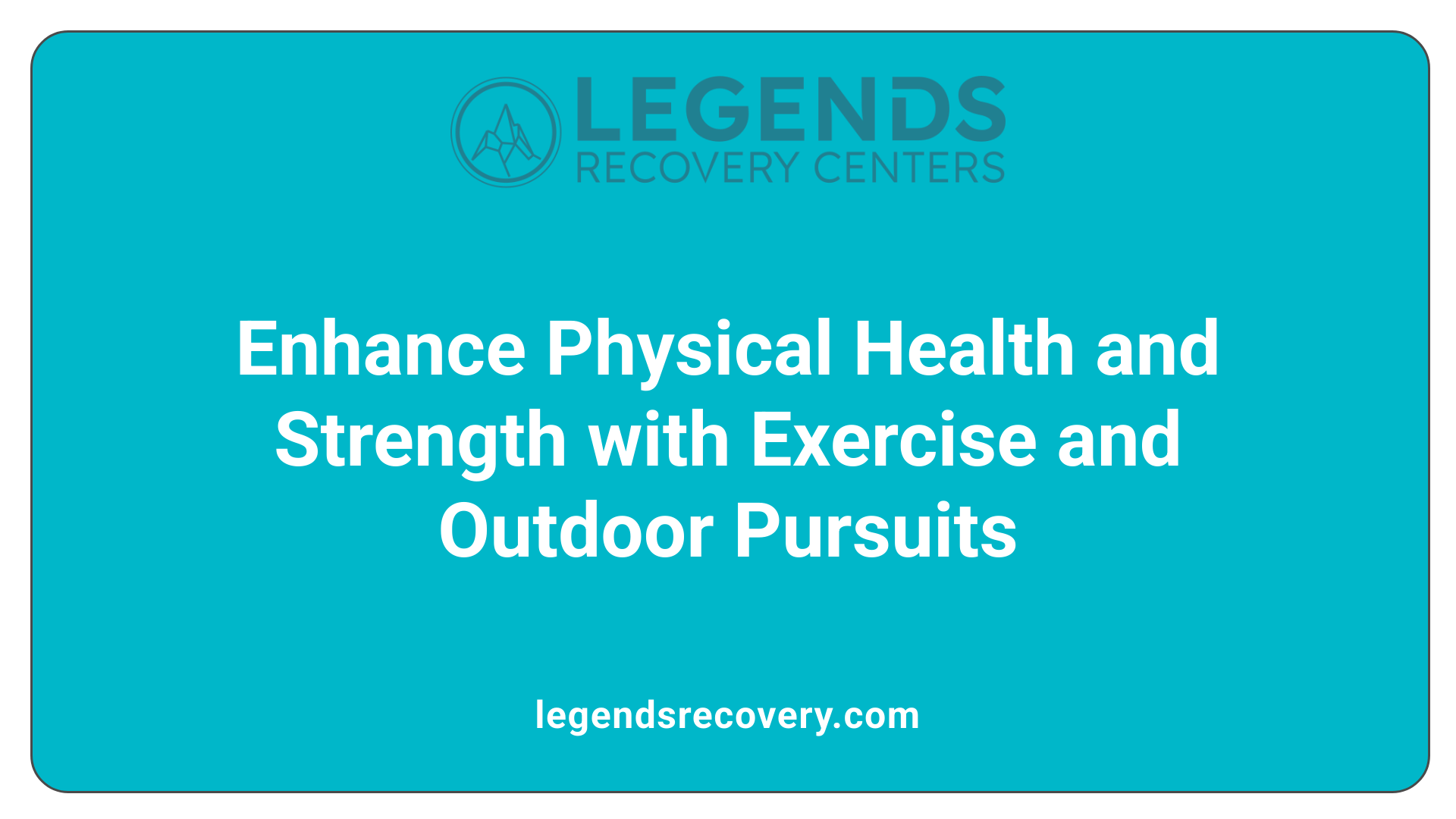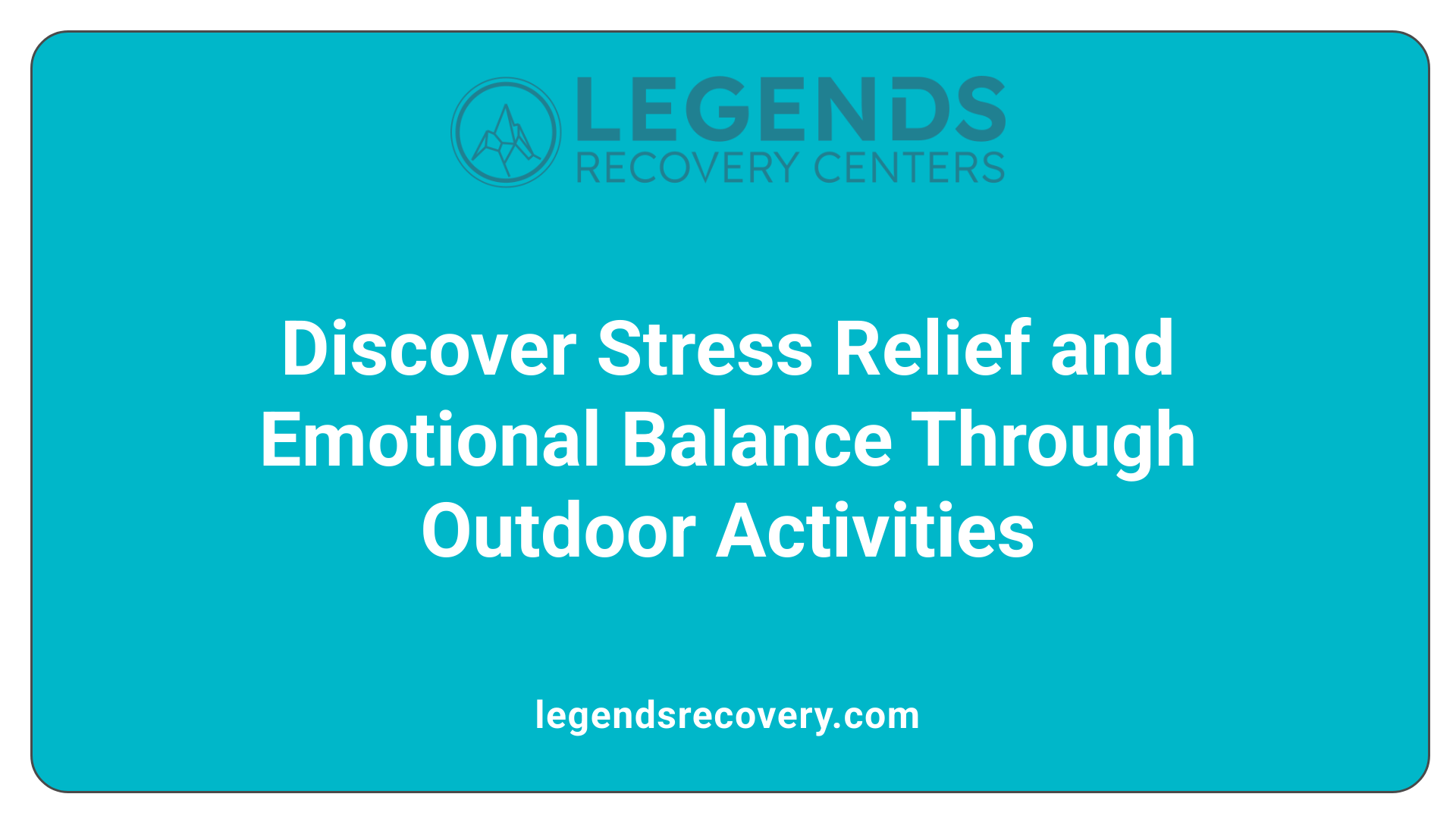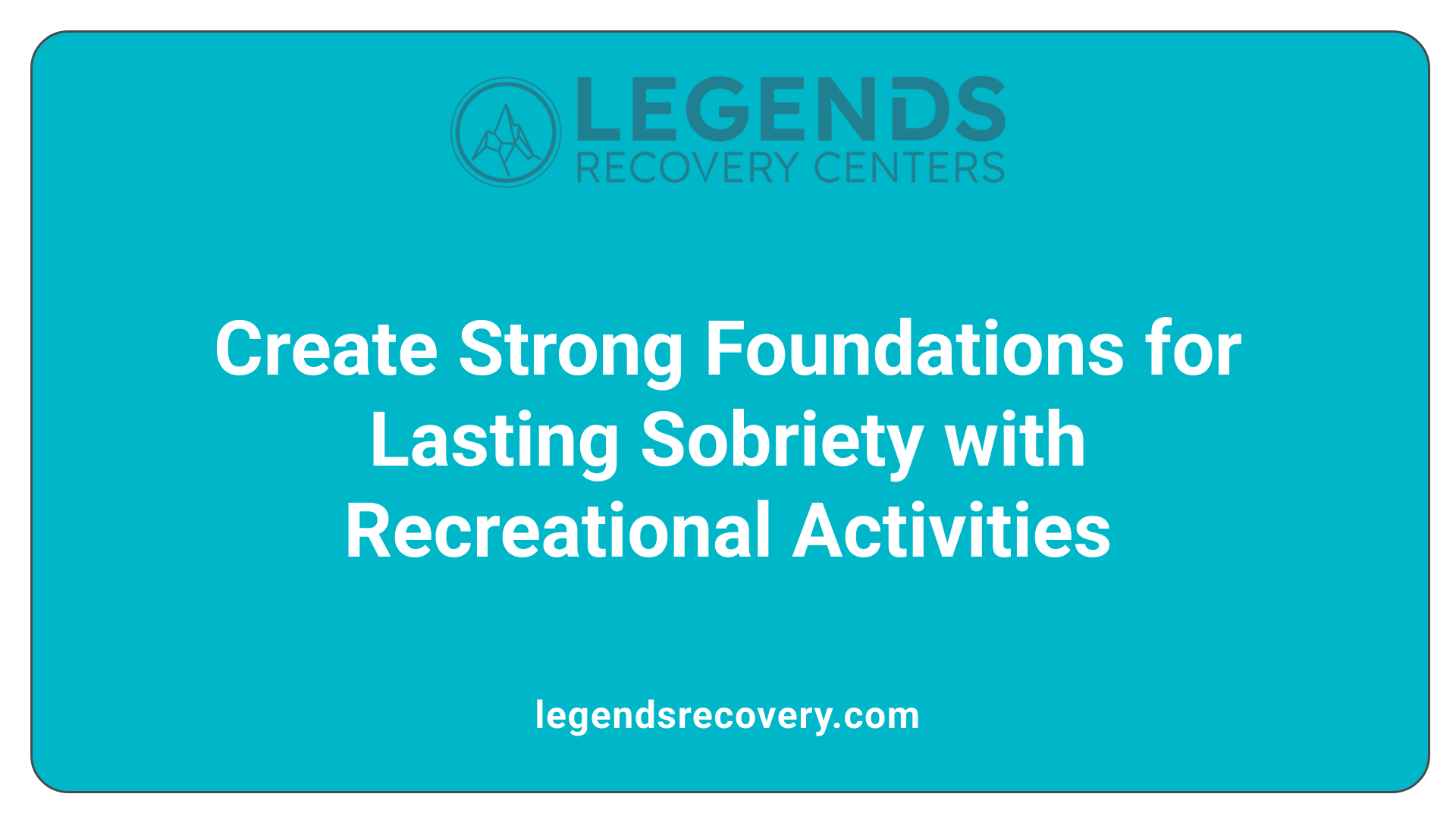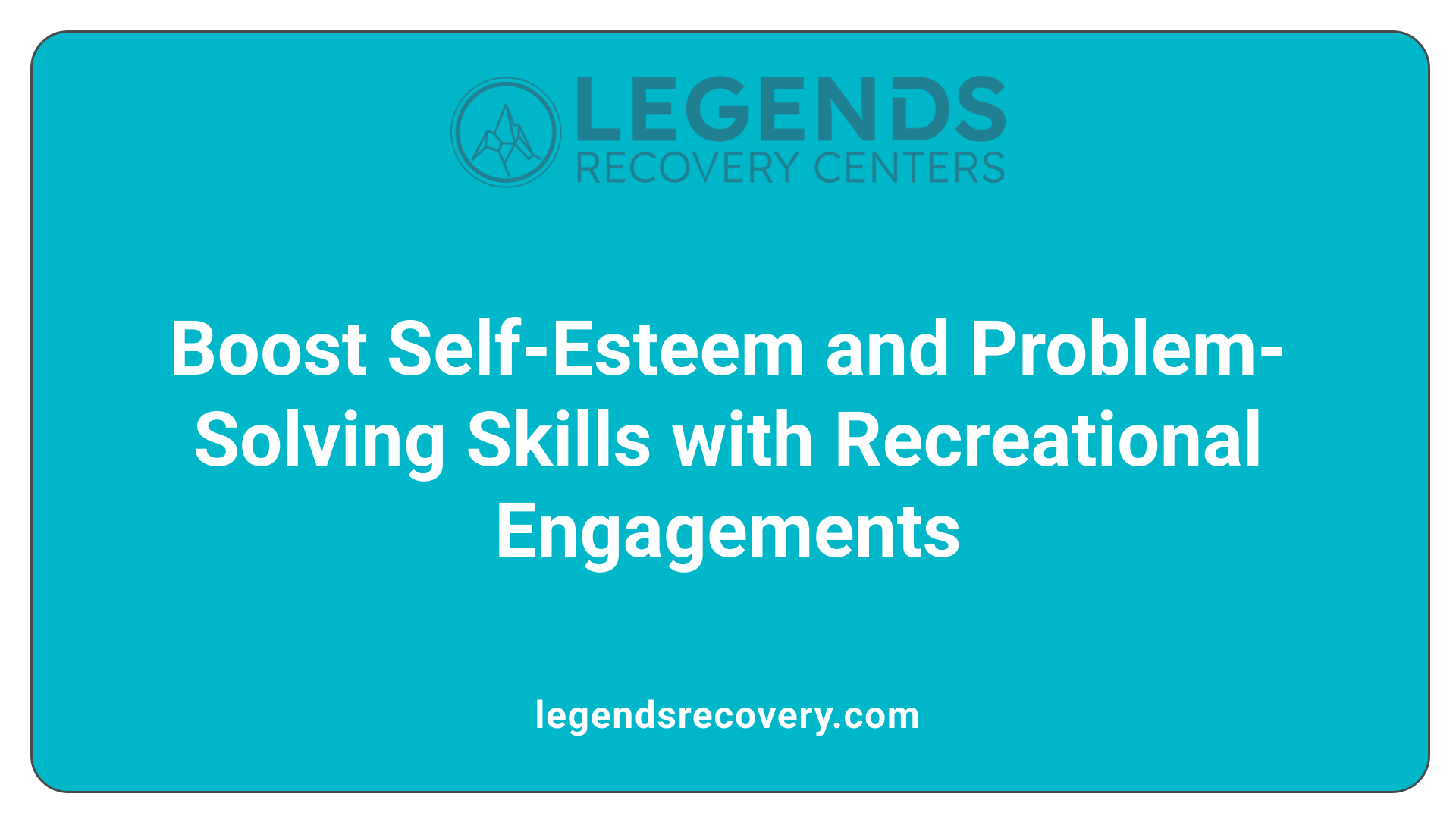Unlocking Holistic Recovery Through Recreation

Participating in recreational activities during recovery is a vital component of holistic healing. These activities promote physical health, emotional resilience, and social connections, which are fundamental to overcoming addiction and maintaining long-term sobriety. By engaging in diverse recreational pursuits—ranging from outdoor adventures to artistic expression—individuals discover coping strategies, enhance self-esteem, and build supportive networks. This article explores how recreational activities support recovery, improve well-being, and help prevent relapse, emphasizing their importance in treatment programs and daily life.
Recreational therapy plays a vital role in supporting individuals during addiction recovery by addressing both physical and emotional health. It encourages physical fitness through activities like sports, yoga, outdoor pursuits, and dance, which improve cardiovascular health, strength, flexibility, and coordination. These physical benefits help counteract the health issues often linked with active addiction, such as muscle weakness and poor motor skills.
Mentally, recreational therapy facilitates emotional expression and provides healthier coping mechanisms. Engaging in art, music, and outdoor activities releases endorphins, naturally lifting mood and alleviating symptoms of anxiety and depression. These activities not only foster emotional resilience but also help reduce stress and mental fog, supporting cognitive functions such as attention, memory, and problem-solving.
A significant element of recreational therapy is its focus on social connection. Participating in group activities helps rebuild communication skills, diminishes feelings of isolation, and creates supportive networks crucial for long-term sobriety. Setting personal goals within these activities boosts self-esteem, motivation, and confidence, motivating continued engagement in recovery efforts.
Research, including a study from Brigham Young University, highlights that recreational therapy increases intrinsic motivation and enhances overall functioning for those undergoing addiction rehab.
By promoting both physical well-being and emotional resilience, recreational therapy provides a comprehensive approach. It supports the development of new life skills, encourages healthy routines, and ultimately helps individuals reclaim their lives with renewed confidence and purpose.
| Benefit Area | Examples of Activities | Impact |
|---|---|---|
| Physical health | Sports, hiking, yoga, outdoor pursuits | Improves cardiovascular health, strength, flexibility |
| Emotional well-being | Art, music, dance, mindfulness practices | Reduces depression, anxiety, stress; enhances emotional regulation |
| Social skills | Group sports, arts, community projects | Builds communication, teamwork, reduces isolation |
| Cognitive skills | Puzzles, creative arts, outdoor exploration | Boosts attention, memory, problem-solving abilities |
| Self-esteem and motivation | Goal-setting in activities, volunteer work | Increases confidence, perseverance, purpose |
Through these diverse activities, recreational therapy supports a holistic recovery process, addressing physical health, emotional balance, and social integration. The combination of these benefits fosters a healthier, more resilient lifestyle free from substances.

Engaging in physical activities is a crucial part of the recovery process from addiction. Regular exercise serves as a healthy alternative to substance use, activating the brain's reward system naturally by releasing chemicals like dopamine and serotonin. These neurotransmitters boost mood and help combat feelings of depression and anxiety often experienced during withdrawal.
Physical activity also plays a vital role in alleviating withdrawal symptoms such as cravings, irritability, and fatigue. It provides a positive outlet for managing stress and emotional distress, reducing the temptation to relapse.
Moreover, incorporating exercise fosters discipline and routine, which are essential for successful recovery. Group activities such as team sports, outdoor pursuits like hiking or kayaking, and fitness classes encourage social support and accountability, further strengthening the recovery journey.
From a mental health perspective, physical activity improves mental clarity, self-esteem, and sleep quality. These enhancements make recovery more sustainable by building resilience against triggers and boredom.
In summary, physical activity supports long-term sobriety by improving both physical and emotional well-being. It helps individuals regain control over their bodies and minds, paving the way for healthier, substance-free lives.
| Aspect | Benefits | Additional Details |
|---|---|---|
| Improved fitness | Increases cardiovascular health, strength, and flexibility | Enhances overall physical resilience crucial during recovery |
| Motor skills | Boosts coordination, balance, and motor control | Supports daily functioning and self-confidence |
| Alleviation of withdrawal symptoms | Reduces anxiety, depression, and cravings | Endorphin release provides natural mood stabilization |
| Stress reduction | Outdoor activities like hiking or swimming lower cortisol levels | Promotes relaxation and mental clarity |
| Emotional well-being | Fosters a sense of achievement and purpose | Improves mood and self-esteem, supporting sustained sobriety |
Engaging in physical activities is widely recognized for its positive impact on recovery from addiction. It not only helps repair physical health but also enhances mental resilience and emotional stability. As part of holistic treatment plans, outdoor pursuits like hiking or sports, along with structured exercise routines, are recommended to support the journey toward lasting sobriety.

Participating in recreational activities offers notable stress reduction benefits by helping individuals improve their mood and decrease physiological stress indicators like cortisol and heart rate levels. Engaging in activities such as hiking, sports, or outdoor pursuits allows for relaxation and mental distraction from cravings or negative thoughts.
These activities also foster social connections, allowing individuals to build supportive relationships. Social interaction during recreational pursuits improves emotional well-being, reduces feelings of isolation, and creates a sense of community crucial for ongoing recovery.
Physical recreational activities act as natural stress reducers by increasing the production of endorphins, our body's feel-good hormones. They function similarly to 'meditation in motion,' helping individuals focus their attention, calm their minds, and decrease irritability. This mindfulness aspect during outdoor or athletic exercise can significantly ease anxiety and depressive symptoms.
Research indicates that outdoor recreation has specific therapeutic benefits, including lowering cortisol levels— a key stress hormone— promoting relaxation and mental clarity. Whether it’s a walk in the park, a team game, or an adventure activity like ziplining, these pursuits help balance emotional states.
In addition to physical health, recreational activities contribute to improved sleep quality and overall psychological engagement. They provide positive distractions and teach healthy coping strategies that support long-term sobriety. By integrating enjoyable leisure pursuits into recovery routines, individuals can effectively manage stress, enhance social bonds, and promote holistic mental health.
Recreational activities play a crucial role in strengthening self-esteem and enhancing problem-solving abilities during addiction recovery. Engaging in hobbies like sports, arts, music, or outdoor pursuits provides individuals with valuable opportunities to experience success and accomplishment. These experiences boost confidence and foster a positive self-image.
Participating in group activities fosters social connections and gives individuals a sense of community and support. This social interaction helps reduce feelings of isolation, which often accompany recovery, and reinforces emotional stability.
Moreover, recreational activities stimulate mental processes like decision-making and problem-solving. For example, planning a hike, working on an art project, or playing team sports require strategic thinking and resilience.
Overall, such activities promote emotional well-being, teach practical skills, and help develop mental toughness. They empower individuals to build a resilient mindset and self-assurance, which are vital for maintaining sobriety and forging a healthier future.

Recreational activities play an essential role in maintaining sobriety by addressing multiple aspects of well-being. When individuals engage in hobbies like sports, arts, music, outdoor adventures, or mindfulness exercises, they experience a reduction in stress, anxiety, and depression—common triggers for relapse.
These activities are not just pastimes; they serve as healthy outlets for emotional expression and stress relief. For example, outdoor pursuits such as hiking or fishing boost relaxation and lower cortisol levels, promoting calmness. Creative pursuits like art and music enhance mood and self-esteem, helping individuals feel accomplished and motivated.
Social connection is a major benefit of recreational therapy. Participating in group activities fosters a sense of community and reduces feelings of isolation that can lead to relapse. Building supportive relationships through recreational settings enhances accountability and provides encouragement.
Furthermore, recreational activities help develop vital skills including goal-setting, problem-solving, and emotional regulation. Achieving milestones in hobbies or sports reinforces confidence and perseverance, which are crucial for long-term recovery.
Engagement in leisure pursuits also replaces substance-related activities, giving individuals fulfilling experiences that promote joy without risks. This sense of purpose and satisfaction strengthens their resilience against cravings and triggers.
Overall, integrating recreational activities into addiction treatment improves motivation, enhances treatment engagement, and builds a robust foundation to sustain sobriety.
Recreational activities play a vital role in residential treatment programs for addiction recovery by supporting multiple dimensions of healing. They help individuals rebuild their physical health through activities like sports, outdoor adventures, and yoga, which improve fitness, coordination, and strength. Engaging in creative therapies such as art, music, and dance allows patients to express emotions, manage stress, and boost self-esteem.
Socially, recreational activities foster connections between participants. Group sports, outdoor pursuits, and communal projects cultivate teamwork and communication skills, which are essential for creating a reliable support network. These social bonds help reduce feelings of isolation that often accompany recovery and are pivotal in preventing relapse.
Emotionally, leisure activities help regulate mood and alleviate symptoms of depression and anxiety common during withdrawal. Achieving goals in these activities builds motivation and resilience, reinforcing positive behaviors and a sense of purpose. Additionally, recreational therapy provides healthier outlets for stress reduction, encouraging mindfulness and relaxation.
Cognitively, engaging in stimulating activities like problem-solving exercises and creative pursuits enhances mental clarity and cognitive functioning. This mental stimulation supports brain recovery and helps rebuild essential life skills.
Incorporating recreational therapy into treatment programs creates a holistic healing environment. It makes the recovery process more enjoyable while addressing physical, emotional, social, and mental health needs comprehensively. Ultimately, these activities increase engagement, improve mental health outcomes, and promote long-term sobriety, making them a fundamental component of effective residential treatment.
Creating a balanced recovery environment involves addressing all aspects of an individual's well-being. Recreational activities contribute significantly to this by facilitating a comprehensive approach to healing. Outdoor pursuits reduce stress and improve relaxation by lowering cortisol levels. Artistic and musical therapies foster emotional expression and boost self-esteem.
Team sports and group outdoor adventures develop social skills and promote community building, which are critical for ongoing recovery. Activities like hiking and adventure sports also reinforce resilience and problem-solving abilities.
Providing diverse options—from physical activities to creative and mindfulness practices—ensures that individuals find meaningful ways to stay engaged and motivated. These pursuits teach lifelong skills such as goal setting, perseverance, and healthy coping strategies.
Organizations like Cumberland Heights exemplify this approach by offering tailored recreational programs, including art, music, adventure activities, equine therapy, and sports. These programs help individuals regain physical health, rebuild cognitive functions, and develop emotional strength.
By integrating recreational therapies, treatment centers enable clients to replace substance use with positive, rewarding experiences. This holistic approach enhances recovery success rates and supports individuals in establishing a fulfilling, substance-free life.

Recreational activities play a vital role in helping individuals in recovery develop essential life skills and a sense of purpose. Engaging in hobbies such as sports, arts, music, or outdoor pursuits promotes emotional well-being and provides a sense of achievement. Successfully completing these activities boosts self-esteem, making individuals feel more confident in their abilities.
These activities also stimulate cognitive functions like decision-making and problem-solving. For example, setting objectives in outdoor adventures or artistic projects encourages strategic thinking and resilience. Such experiences foster practical skills that are crucial for everyday challenges.
Participation in group recreational activities enhances social skills and builds a support network. Sharing successes and overcoming obstacles together strengthens emotional stability and a positive outlook. This social interaction also helps combat feelings of isolation often associated with recovery.
Overall, recreational activities give individuals constructive outlets for expression, growth, and connection. They promote holistic recovery by enhancing physical health, emotional resilience, and social skills—empowering individuals to create a sustainable, substance-free future.
| Activity Type | Skills Developed | Additional Benefits |
|---|---|---|
| Sports | Teamwork, problem-solving, resilience | Physical fitness, confidence, stress reduction |
| Arts & Crafts | Creativity, decision-making | Emotional expression, self-esteem |
| Outdoor Adventures | Planning, risk assessment | Stress relief, sensory engagement |
| Music & Dance | Emotional regulation, coordination | Mood enhancement, social bonding |
This broad spectrum of recreational activities not only supports recovery but also equips individuals with practical skills for everyday life, helping them rebuild confidence and purpose beyond their struggles.
Leisure plays a crucial role in recovery by supporting physical, emotional, and social well-being. Engaging in recreational activities like art, music, outdoor pursuits, and sports helps reduce stress, elevate mood, and foster a positive sense of identity.
Activities such as yoga, hiking, and team sports improve physical health, boost self-esteem, and teach essential life skills like problem-solving and resilience. These activities also provide outlets for emotional expression, helping to alleviate feelings of anxiety, depression, and isolation caused by addiction.
Recreation offers structure and purpose, filling leisure time with meaningful pursuits that support mental health and reduce the risk of relapse. They help individuals develop healthy coping mechanisms and social connections, which are vital for long-term sobriety.
Incorporating diverse recreational activities into a comprehensive recovery plan not only enhances individual well-being but also promotes community involvement and personal growth. Overall, leisure and recreation are indispensable for transforming recovery into a fulfilling, balanced life.
Recovery is most effective when it addresses the whole person. Adding recreational activities provides a natural, enjoyable way to build resilience and maintain motivation.
Encouraging individuals to participate in hobbies such as sports, arts, music, or outdoor adventures can significantly improve neurochemical levels like dopamine and serotonin, supporting mental health and reducing cravings.
Recreational therapy fosters social bonds, boosts self-esteem, and teaches new skills, all of which contribute to a stronger foundation for sobriety. Starting with simple activities like walking in nature or joining a community class can make a meaningful difference.
By making leisure an integral part of the recovery process, individuals gain the tools and experiences needed to create a balanced, joyful, and substance-free life. Embracing recreation is ultimately about reclaiming personal joy and resilience on the path to long-term health.
Recreational activities are more than mere pastimes; they are powerful tools that reinforce every facet of recovery. Whether improving physical health, enhancing emotional resilience, strengthening social bonds, or building life skills, recreation plays a pivotal role in creating sustainable, fulfilling sobriety. By integrating diverse recreational therapies into addiction treatment and daily routines, individuals can experience increased motivation, reduced risk of relapse, and an enriched quality of life. Embracing recreation as a core component of recovery not only addresses the immediate challenges of addiction but also cultivates resilience and personal growth, paving the way for a healthier, more balanced future.